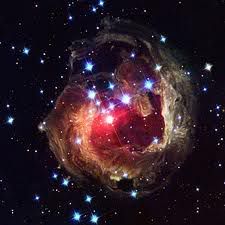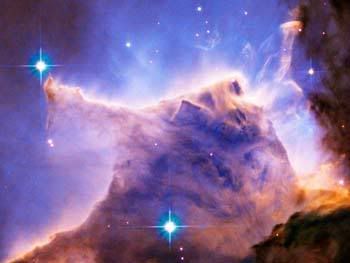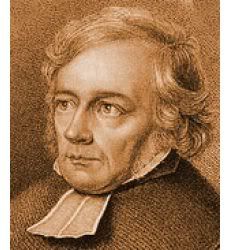
The concept here is that the universe could be uncaused but time still begins with singularity. The singularity would just not be caused by anything. There are many such theories but I'll look at an article for this idea by Quentin Smith, “The Uncaused Beginning of the Universe.”i Smith was a major atheist Philosopher during the last decade of the twentieth century and the first decade of this century. Smith posits the argument that the scientific data indicates no physical cause fr the singularity, he asserts no devine cause either.
There is sufficient evidence at present to justify the belief that the universe began to exist without being caused to do so. This evidence includes the Hawking-Penrose singularity theorems that are based on Einstein's General Theory of Relativity, and the recently introduced Quantum Cosmological Models of the early universe. The singularity theorems lead to an explication of the beginning of the universe that involves the notion of a Big Bang singularity, and the Quantum Cosmological Models represent the beginning largely in terms of the notion of a vacuum fluctuation. Theories that represent the universe as infinitely old or as caused to begin are shown to be at odds with or at least unsupported by these and other current cosmological notions.ii
The first evidence he presents is the Doppler re shift which tells s that the universe is expanding uniformly in all directions. This might indicate expansion from an origin at a single point, the singularity. Through the Friedmann equations and the general theory of relativity (GTR) it can be assertained that arly in thye beginning of expansion “the entire universe is squeezed into at least one point of infinite density, infinite temperature, and infinite curvature. We have reached a space-time singularity.”iii He also argues that the singularity is real. He presents a great deal of data and examines many alternate theories eliminating them one by one. Of course is data is out of date (1988) but the major thing he's missing is the massive acceptence of inflationary theory (see above). That doesn't contradict anything he argues, but would enhance it.
He argues for a finite past based upon the amount of radiation and entropy. Each new cycle would the universe getting bigger and longer thus as we go back in time it get's smaller and shorter. “This disallows an infinite regress into the past, for a regress will eventually arrive at a cycle that is infinitely short and a radius that is infinitely small; this cycle, or the beginning of some cycle with values approaching the values of this cycle, will count as the beginning of the oscillating universe.”iv The amount of radiation present in the universe Indicates a finite past. Infinite past would mean infinite radiation, but the radiation present in the universe is finite.v “The conclusion that the past is finite also follows from facts about entropy; if an infinite number of previous cycles have elapsed, each with increasing entropy, then the present cycle would be in a state of maximum entropy-but in fact it is in a state of relatively low entropy.”vi
He then turns his attention to the assertion that the universe is uncaused. Being finite and eliminating possibilities of infinite time, having eliminated thye ideas of infinite series of oscillations, at that point he has a good argument for creation of the universe. But then he argues that it's uncaused, thus not created. Arguments for caused universe assume that macroscopic events are caused, and the singularity is assumed to be a macroscopic event. Yet the singularity is not macroscopic its smaller tan microscopic. Of course thyat's going to get back to the idea that quantum particle come from nothing. The singularity is a quantum event so it must cme from nothing. Of course we kow from discussion above that this is a fallacy. In addition to thyis the discovery that the singularity can't be extended beyond the space/time manifold means it must be uncaused. He argues that the definition of singularity rules out space/time extending beyond the bubble of the singularity; that rules out some other prior thing causing it.
Accordingly, if there is some point p beyond which it is possible to extend the space-time manifold, beyond which geodesics or timelike curves can be extended, then p by definition is not a singularity. This effectively rules out the idea that the singularity is an effect of some prior natural process.vii
The bubble (singularity, the mathematical point) could still expand and contract but not be caused by anything outside it. But the oscillations would be of a finite number.
From there, having eliminated natural causes for the universe, he moves on to argue against divine cause. He begins with William Lane Craig's Kalam argument, the first line of which is “We have reason to believe that all events have a cause...” Smith repudiates this based upon the mistaken notion that quantum particles are really coming from actual nothing. He quotes Craig: “Constantly verified and never falsified, the causal proposition may be taken as an empirical generalization enjoying the strongest support experience affords.” Then he adds “However, quantum mechanical considerations show that the causal proposition is limited in its application, if applicable at all, and consequently that a probabilistic argument for a cause of the Big Bang cannot go through.”viii Of course we know that's a misconception. Virtual particles are combinations of other kinds of particles in “vacuum flux.” They only go in and out of existence as virtual particles. Where the other particles come from we don't know. Smith's article is not disproof of divine cause but assertion based upon ill conceived notion that it is not needed.
The cause principle is applicable because we still have no examples of any violation. We have no examples of uncased events. The force of one example was enough to rule it out for the skeptic, it should be enough to rule it back in. Smiths article helps to eliminate other alternatives, including the next one. Of curse in the material he presents would tell us about where laws governing the process came from or why they are hierarchical.
i Quentin Smith, “The Uncaused Beginning of the Universe.” The British Journal of the Philosophy of Science, (1988, Vol., 55, no. 1), 39-57.
iiIbid.
iiiIbid.
ivIbid.
vIbid.
viIbid.
viiIbid.
viiiIbid.




